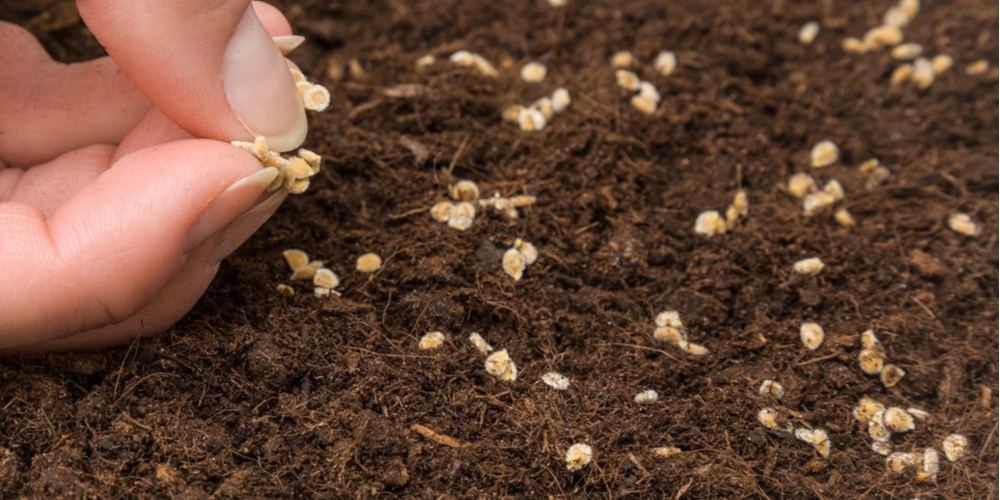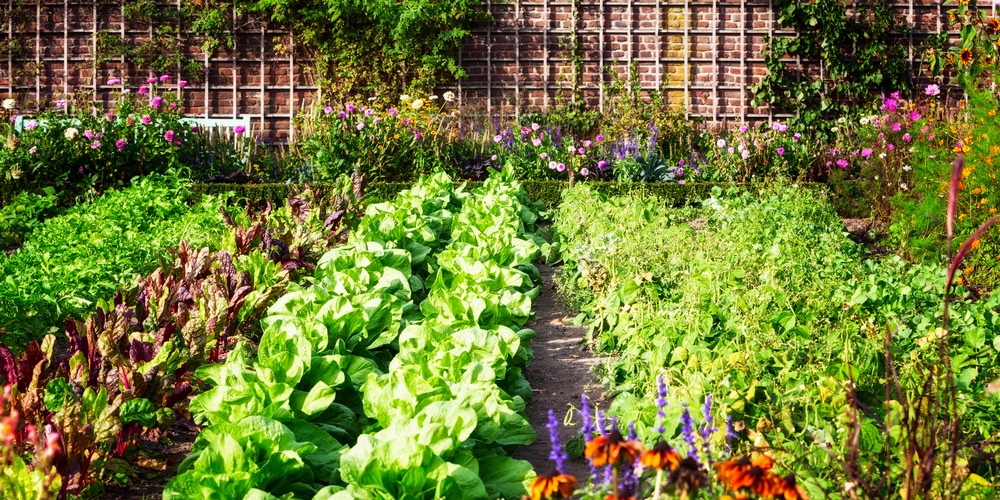When you start planning your garden, one of the first decisions you’ll make is what type of seeds to buy. Different factors like price, availability, and whether you want to save seeds from your plants can all come into play.
Whether you’re a first-time gardener or an experienced green thumb, buying seeds is one of the first steps in starting a garden. But how do you know which type of seed to buy? Heirloom or organic? What’s the difference? And does it even matter? Let’s take a closer look.
What are Heirloom Seeds, and How are They Different from Organic Seeds

When you think of the word heirloom, you might think of antique furniture or your grandma’s silverware. But in the gardening world, an heirloom or heritage seed is a plant that has been passed down for generations.
They are open-pollinated, meaning they can be pollinated by insects or the wind, and will grow true to their parent plant. This means that it brings the same features, flavors, and colors as the plant it came from.
On the other hand, organic seeds are those that are certified to have been grown without the use of synthetic fertilizers or pesticides. These seeds have been grown in accordance with specific standards set by the USDA’s National Organic Program.
Aside from these main features, here are some of the differences between heirloom and organic seeds:
Price
Heirloom seeds are often more expensive than organic seeds, but there are a few reasons. First, heirloom seeds are usually open-pollinated, meaning that they can be saved and replanted year after year without losing quality. This process is more time-consuming and labor-intensive than growing hybrid or genetically modified seeds.
In addition, heirloom seeds are often sourced from small farmers or seed banks, which raises the price. However, many gardeners feel that the benefits of heirloom seeds outweigh the cost.
After all, these seeds represent a link to our gardening past and can help preserve plant diversity.
Availability
Organic seeds are more widely available than heirloom seeds, especially from large commercial seed companies. This is because organic seeds must meet certain standards set by the USDA’s National Organic Program.
In contrast, there is no certification process for heirloom seeds, so they can be harder to find.
If you’re having trouble tracking down heirloom seeds, try looking for them at your local nursery or garden center. You can also find them online from seed banks or specialty retailers.
Saving Seeds
One of the main benefits of heirloom seeds is that they can be saved and replanted yearly. This process, called seed saving, helps preserve plant diversity and save you money in the long run.
Organic seeds can also be saved and replanted, but because they are not open-pollinated, they will not grow true to their parent plant. This means that over time, the quality of the plants may decline.
Shelf Life
Organic seeds have a shorter shelf life than heirloom seeds. This is because they haven’t been treated with chemicals to prolong their shelf life. On the other hand, heirloom seeds can last for several years if stored properly.
This is an important consideration if you live in an area with a short growing season or if you want to start your plants from seed. With a longer shelf life, you can buy heirloom seeds in bulk and save them for several years.
Nutritional Value
Although minimal, heirloom seeds may have a higher nutritional value than organic seeds. This is because they are often grown in smaller batches and receive more individual attention. In addition, heirloom seeds are often grown in organic conditions, contributing to their higher nutritional value.
What Type of Seed is Right for Your Garden?
In general, there are no right or wrong answers when it comes to choosing heirloom or organic seeds. It really depends on what you’re looking for in your garden.
Here are a few things to consider.
What Are Your Gardening Goals?
Do you want to save money by starting your plants from seed? Do you want to preserve plant diversity? Are you looking for the highest possible nutritional value? Your answers to these questions will help you decide whether heirloom or organic seeds are suitable for your garden.
What Type of Plants Do You Want to Grow?
If you’re interested in growing fruits and vegetables, heirloom seeds may be a good option. This is because many heirloom varieties were bred for their flavor rather than their looks.
On the other hand, if you’re looking to grow flowers, organic seeds may be a better choice. This is because most flower varieties are hybrids, which means they will not grow true to their parent plant.
What Is Your Budget?
Another thing to consider is your budget. Heirloom seeds can often be more expensive than organic seeds, so if money is tight, going organic might be the way to go.
That said, you can usually find good deals on heirloom seeds if you know where to look. Seed swaps and online retailers often have great sales on these types of seeds, so it’s worth doing some research before making your final decision.
Heirloom vs organic seeds: Final Thoughts
In conclusion, there are several key differences between heirloom and organic seeds. Heirloom seeds are passed down from generation to generation and are not hybridized, while organic seeds are grown using organic methods and may or may not be heirloom varieties.
Heirloom seeds often produce more flavorful fruits and vegetables, but they may be less disease-resistant than hybridized varieties. Organic seeds are more expensive than conventional seeds but cheaper than heirloom seeds.
Additionally, they are gaining in popularity due to the many benefits of organic agriculture. Ultimately, the decision of which type of seed to grow is a personal one, and both heirloom and organic seeds have a place in the home garden.
Related Article: Is Onion a Vegetable?
